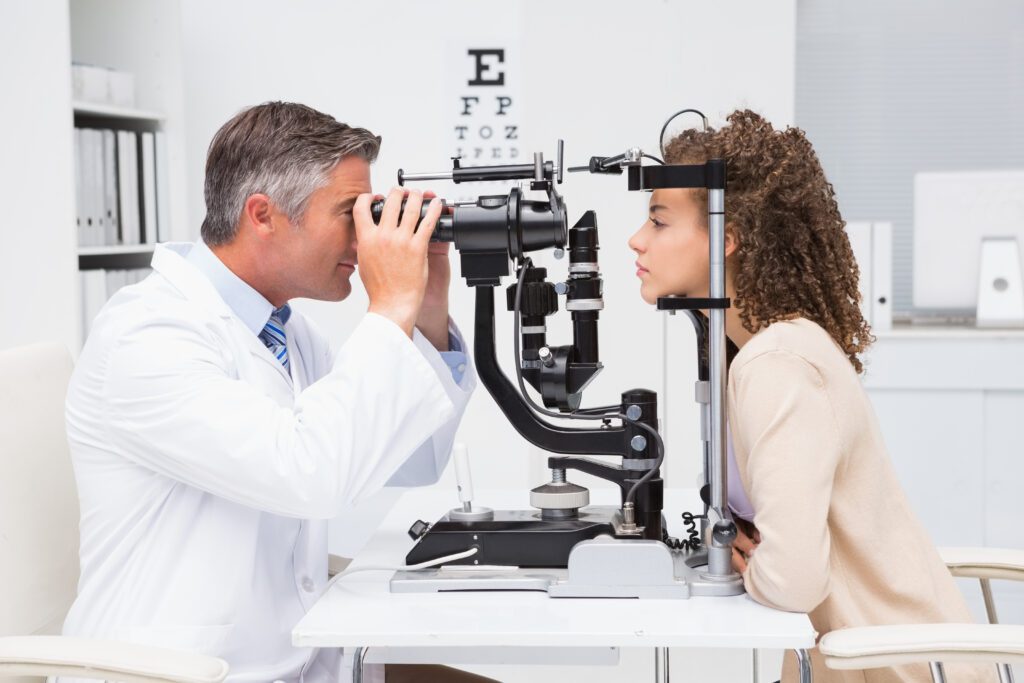Whether you’ve recently moved to the Netherlands or are considering a move in the near future, it’s only natural to have some questions about Dutch health insurance.
Between terms like eigen risico and zorgtoeslag, understanding the ins and outs of Dutch health insurance isn’t as simple as taking a stroll around Amsterdam’s Vondelpark.
We know the struggle, so we’ve compiled a list of things you need to know if you’re an international taking out Dutch health insurance. 🙌
This post might have affiliate links that help us write the articles you love, at no extra cost to you. Read our statement.
1. You guessed it, health insurance is mandatory

Spoiler alert: finding Dutch health insurance should be one of your top priorities if you’re planning on moving to the Netherlands.
READ MORE | Dutch health insurance in 2025: What’s new?
In addition to definitely making your life easier (and cheaper!), health insurance is obligatory if you’re living, working, or (in certain cases) studying in the Netherlands.
Let op! Some international students may need specific health insurance for their residence permits, whilst others may be able to use their home country’s travel insurance. Do remember to check your individual requirements before shelling out for Dutch health insurance.
There are two main types of Dutch health insurance: basisvezekering (basic health insurance) and aanvullende verzekering (additional health insurance).
Only the former is compulsory, but sometimes additional health insurance may be necessary to cover your specific needs (such as repatriation).
Good to know: Various providers offer comprehensive basisvezekering and aanvullende verzekering plans, such as Anderzorg and OHRA. Others, like Univé, also allow you to compile “insurance packages” that cover more than just healthcare.
2. Got a European Health Insurance Card? Hoera, you don’t need Dutch health insurance (for now)

A European Health Insurance Card is a form of insurance coverage issued by the national health insurance providers of EU and EEA member states.
READ MORE | All you need to know about going to the hospital in the Netherlands
Anyone can apply for a card from their state insurance providers, as long as they are fully insured in their EU/EEA home countries.
This means that EHIC holders don’t need Dutch health insurance whilst they’re studying in or visiting the Netherlands as long as they remain insured in their home countries.
However, it’s important to note that an EHIC won’t cover all your medical needs — it will only cover as much as basic Dutch health insurance does.
For any other medical treatments or specialists, you’ll need to take out additional health insurance.
Let op! EHIC is only intended to be a temporary measure. If you’re planning to live in the Netherlands for an indefinite period of time or start working here, then you will need to take out Dutch health insurance.
3. Dutch basic health insurance doesn’t cover dental, vision, and specialist care

Maybe you’ve had one too many stroopwafels as a midnight snack and forgotten to brush afterwards.
Helaas pindakaas (unfortunately, peanut butter), if you have basic Dutch health insurance, this won’t cover the cost of a dentist attending to your toothache.
The same goes for that eye exam you keep wanting to schedule at the ophthalmologist’s (but accidentally-on-purpose keep forgetting about 😉), and appointments with any specialists you’d like to see.
Anything beyond basic healthcare needs and absolute emergencies won’t be covered by your basic Dutch health insurance, so you’ll need to take out additional healthcare insurance to have these services covered.
Good to know: Certain health insurance providers (such as OHRA) offer dedicated dental insurance packages.
4. Oeps! Having no health insurance in the Netherlands may get you fined

With prices in the Netherlands increasing almost as fast as the rising sea levels around this flat, little country, it may seem like a savvy decision to do without healthcare insurance.
However, for every hundred euros you save in insurance fees, you draw ever closer to being handed a steep fine. The CAK (Dutch Central Administration Office) is the national body that oversees healthcare costs — and they’ll come for you.
If you’re a resident of the Netherlands, and you’re believed to be uninsured, the CAK will send you a stern letter advising that you get Dutch healthcare insurance. They will give you a grace period of three months to do so.
If, after these three months, you still haven’t registered for insurance, you’ll have to pay a fine of several hundred euros.
Still no insurance? Well, then the fines will keep racking up and the CAK will eventually assign insurance to you. 💸🥴
Let op! Dealing with the CAK tends to be incredibly slow and full of bureaucratic hurdles, so minimising your interactions with them is always a good idea. How can you do this? Get insurance!
5. Deductibles can lower your monthly insurance premiums

Also known as your eigen risico (or “own risk”), these deductibles are the amount that you are required to pay out of pocket when your health insurance provider pays for your treatment.
As of 2024, the lowest deductible that you’ll be required to pay before your insurance kicks in is €385. However, you can voluntarily raise your deductible by an amount between €100 and €500 in return for a discount on your monthly insurance premium.
Whilst you’ll be saving money on a monthly basis, it’s important to note that taking out a higher deductible increases the risk of paying a much larger sum of money further down the line.
A deductible of, say, €885 would entail that your insurance provider will ask you to pay €885 out of pocket after they’ve paid your bills. Pretty steep! 😳
6. Dutch health insurance will cover medical emergencies

If you’re picturing a medical bill the price of a Porsche after a sudden rush to the emergency room, we’re here to tell you not to worry.
Provided your emergency is, in fact, an emergency, your Dutch health insurance provider will be happy to foot most of the bill for whatever medical treatment you need.
READ MORE | The ultimate guide to gynaecology, birth control, and check-ups in the Netherlands
This includes ambulance rides, hospital stays, surgery, and more — though you will need to pay the eigen risico (own risk) of the bill yourself.
Tip: Maybe it’s nearing your due date, and you’re worried if your insurance will cover the costs associated with birth. Maak je geen zorgen (don’t worry), because those costs will be fully covered.
7. If you’re travelling within the EU, you’re still covered

Take it from us: seagulls are an absolute nuisance.
One minute you’re enjoying your holiday in the south of France, and the next minute, one of these feathered rats has chased you through a pane of glass, whilst in pursuit of your chips.
Even though the glass will definitely hurt (ouch! 🤕), you’ll be pleased to know that your mishap won’t hurt your bank account, as Dutch health insurance covers medical costs within the EU.
Although the medical care you’re entitled to and the costs you’re allowed to claim back may vary according to your insurance provider, you won’t be left to entirely fend for yourself.
8. Dutch healthcare allowance protects those who can’t afford insurance

Unless you’re Elon Musk, you’re probably going to agree that health insurance is expensive — and that’s because it is! With Dutch health insurance premiums on the rise each year, it definitely doesn’t look like the trend will reverse any time soon.
Enter… Dutch healthcare allowance.
READ MORE | Toeslagen: save money with these allowances in the Netherlands
Healthcare allowance (or zorgtoeslag) in the Netherlands is a monthly allowance that the government pays to everyone who earns below a certain threshold to help them pay for Dutch health insurance.
Anyone can apply for zorgtoeslag as long as they:
- Earn a gross amount below €37,496 per year (or €47,386 with a partner)
- Have Dutch health insurance
9. Basic insurance may not cover serious mental healthcare

Whilst many people in the Netherlands struggle with their mental health, expats that are new to the country and don’t have an existing support network are especially susceptible.
Even worse? They’ll need to contend with the maze that is the Dutch healthcare insurance bureaucracy to receive treatment from a psychologist, counsellor, or psychiatrist.
READ MORE | Why expats struggle with mental health in the Netherlands — and what you can do about it
Whilst the Dutch government states that health insurance providers are required to pay for a large chunk (if not all) of your mental health treatments, the reality is that coverage may vary wildly with your insurance provider and their policy.
It’s worth noting that most Dutch health insurance providers will only cover mental healthcare if you’ve been referred to a psychologist via your general practitioner (GP).
Some insurance providers may even have a cap on the number of sessions that they’ll cover.
However, there’s a light in the darkness: health insurance add-ons. These ensure that your mental healthcare needs are taken care of, even if your basic Dutch health insurance leaves you hanging.
Tip: Several mental healthcare websites have sections where you can include the name of your insurance provider and policy. This will let you know whether or not you’ll be covered under your insurance.
Even though health insurance in the Netherlands can be a complex beast to wrap your head around, being fully insured will protect you from both bodily and financial harm.
Let’s just say that there’s definitely a reason why the Netherlands has some of the best healthcare in the world! 😉
How does Dutch health insurance differ from health insurance in your country? Tell us all about it in the comments below!
